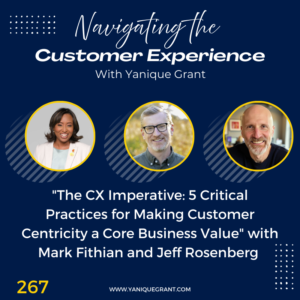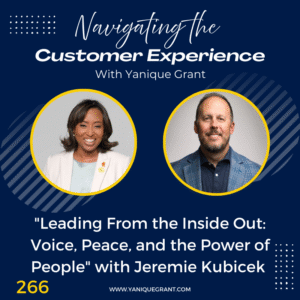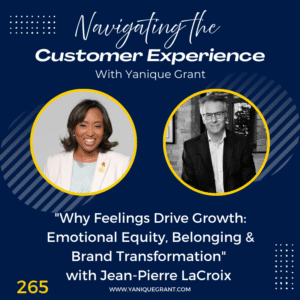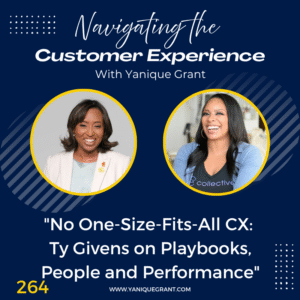Greg Kihlström Show Notes
Greg Kihlström is a best-selling author, speaker and entrepreneur. He is currently CEO and Co-Founder at CarrierGig, after selling his award-winning digital experience agency Carousel30 in 2017. He has worked with some of the world’s top brands, including AOL, Choice Hotels, Coca Cola, Dell, FedEx, GEICO, Marriott International, MTV, Starbucks, Toyota and VMware. He currently serves on the University of Richmond’s Customer Experience Advisory Board, was the founding Chair of the American Advertising Federation’s National Innovation Committee, and served on the Virginia Tech Pamplin College of Business Marketing Mentorship Advisory Board.
Greg’s newest book, The Agile Workforce (2021) explores the current and future state of the workforce and envisions a world where individuals thrive in a new world of work opportunities enabled by technology, decentralization and a shift in the power dynamics between employers and employees. His previous book, The Center of Experience (2020) talks about how customers and employee experiences can be operationalized into a cohesive brand experience.
Questions
- Could you share with us a little bit about your journey. And just tell us how it is that you got to where you are today?
- So your book, agility is one of those words that we’ve been hearing bouncing around for quite a few years now. But I definitely have heard it way more since the pandemic. Could you tell us a little bit about what the book is about? Who is it for? How will it help organizations? Is it geared towards a particular industry? and How can any company or is it specific to an industry in terms of benefiting from an agile workforce?
- Could you maybe share with us based on your experience and your exposure on this topic maybe two or three principles that businesses must be guided by in order to be really agile? Or if they’re just starting on this agile journey, what are two or three things that they need to really consider?
- As it relates to digital experience, people definitely have moved their businesses or some parts of their business to online, how do you think we’re going to adjust after hopefully, things go back to what we used to think was normal in terms of that digital space, will that trend continue? Or do you think people would want to return back to more face to face kind of experiences?
- Could you share with us what’s the one online resource, tool, website or app that you absolutely cannot live without in your business?
- Can you share with us maybe one or two books that have had the biggest impact on you? It could be a book that you read recently, or maybe a book that you read a very long time ago, but it still has had a great impact on you.
- Could you share with us maybe something that you’re working on right now? Something that you’re really excited about – it could be something that you’re working on to develop yourself or your people?
- Where can listeners find you online?
- Do you have a quote or saying that during times of adversity or challenge, you’ll tend to revert to that quote or saying, it kind of helps to get you refocused and just get you back on track? Do you have one of those?
Highlights
Greg’s Journey
Greg shared that he has played a few different roles over his career and depending on how you look at it, he has been a freelancer and employee, entrepreneur, executive, so on and so forth.
Also, he has played roles in creative marketing technology and what he has tried to do throughout his career, some of that is he likes to learn new things and so he constantly tries to challenge himself to learn them. But some of it also is he thrive when he’s able to find connections between whether it’s different disciplines or industries or things like that.
And so, he has always just tried, at first it wasn’t so intentional, he’ll confess but towards getting a few years down in his career, it started to become more intentional that he always wanted to kind of push himself and be a little bit uncomfortable. If he was too comfortable, it meant that he wasn’t learning enough, and he wasn’t pushing himself to do more than he was currently doing.
So, he started a marketing agency, his first job was working at a start-up, he became head of product design there back in the early 2000s, started a marketing agency that he grew and eventually sold about 3 years ago, did a lot in the digital experience space and for a number of those brands that was mentioned, and also quite focused in the financial services industry towards the end before I sold it.
And then after that really got more and more involved in the employee experience, leadership’s role in the employee experience, and HR technology and where he currently is, Careergig really flowed pretty naturally through that where he just kept seeing more and more emphasis being placed on the freelance economy, the gig economy, but there was a lot of things that weren’t really being solved for. And so, he just found a new challenge to try to solve.
About the Book – The Agile Workforce and Who Can Benefit From An Agile Workforce
Me: So your book, agility is one of those words that we’ve been hearing bouncing around for quite a few years now. But I definitely have heard it way more since the pandemic. Could you tell us a little bit about what the book is about? Who is it for? How will it help organizations? Is it geared towards a particular industry? and How can any company or is it specific to an industry in terms of benefiting from an agile workforce?
Greg shared that it’s quite broad in scope as far as industry goes. So, The Agile Workforce: Automation, Decentralization, and Their Role in the Future Workforce, it’s part of a series of books that he has written on the topic of agility in business. And so, he started out focused more on the branding and marketing aspect and how to be more agile in those types of approaches and it’s over time he also started a podcast called The Agile World, you can see a theme developing here. He is four books in for this series and have a podcast all talking about how do we position ourselves to be adaptive and resilient in a constantly changing world, and there’s recent events with the pandemic, certainly draw attention to the need for that. But it’s always been the case that we need that, we need to be agile.
So, the latest book, The Agile Workforce is really talking about this growing independent workforce where 10 years ago was really the birth of what we know as the gig economy, things like Uber and Lyft, drivers, and delivery doordash, all of those types of things really kind of grew out of the 2009 financial crisis where there were a lot of jobs kind of went away, full time jobs, there’s a lot of disenchantment with getting another full time job when you could easily be laid off again at the signs of the next crisis, we’re seeing that now 10 years later.
We’re seeing that now in different spaces of lots of individuals needing to rely on companies to employ them, certainly the companies are the ones hiring them, but not necessarily, a lot of individuals are not necessarily keen to go back to a full time job when we’ve all been kind of sold on full time jobs are the source of stability, and you get your benefits and your retirement and all this stuff. And yet, we’ve seen it slowly go away over the years and now, he thinks some of those things are more myth than reality. And so you have this growing independent workforce that wants the freedom and flexibility to work when they want, how they want, earn as much or as little as they want.
But they need help as far as some of that, some of that the learning that they get from a company or some of the benefits like he mentioned, like health, everything from health insurance to life, disability, all of that stuff. So there’s a challenge right now and there’s a number of ways to solve it. His company Careergig is solving it in one way but there’s some growing needs and opportunities.
Principles To Be Guided By In Order To Be Really Agile
Me: Based on your experience, because as you said, it’s a theme and you’ve definitely found a way to position yourself as a subject matter expert in the area, ensuring that you have a podcast and then these different books that support the whole agile mindset. Could you maybe share with us based on your experience and your exposure around this topic maybe two or three principles that businesses must be guided by in order to be really agile? Or if they’re just starting on this agile journey, what are two or three things that they need to really consider?
Greg shared that he thinks a big one is that agility is something that needs to be embraced company wide.
So we’ve seen agile really has its roots in manufacturing and software development, so we see a lot of most software development teams are using agile, you might hear things about Sprint’s and Scrum masters and things like that.
There’s a very formal agile methodology that teams like that are using, he uses agile in a broader sense of the term really, because some of those things apply a little bit less directly to other areas.
But in order for a company to be agile, everybody’s got to be bought into it. And that’s top down, that’s leaders embracing new ways of doing things, that’s areas of companies that traditionally have not been as agile, whether that’s formal agile, or big ‘A’ agile or small ‘a’ agile as some people say.
HR departments, for instance, not traditionally the most agile and for good reason, they’re taught to be very compliance focused and there’s certain things that they need to always keep an eye on, but it’s got to be company wide. So, that’s definitely the first thing is just leaders need to embrace it and make sure that the entire company is adopting it.
He thinks the other part of this, and he goes into more depth in his book and it’s kind of a theme of most of his books and writing is there needs to be more focus on individuals and individual needs.
And when you do that, it might sound counterproductive because the companies and the shareholders need to get their value but he believes there’s a win-win when companies focus on making sure that individuals are happy, motivated, taking care of, that the companies reap huge benefits.
When an employee’s more motivated, they are more open to change, they’re more open to add activity, all of those types of things. So, it’s sort of the inverse of the first point is like it’s got to start top down from leaders really driving the change, but the change has to be driven almost thinking from the bottom up of what is it going to take for each individual to be more empowered and have more of what they need? And then they’re going to be loyal, they’re going to do what they can to support the company, if you think like that.
Digital Experience the New Normal or Face to Face Experience
Me: As it relates to digital experience, basically, we’re in this space now, where everybody is pretty much online. If you’re not online, I suppose you’re missing out. People definitely have moved their businesses or some parts of their business to online, how do you think we’re going to adjust after hopefully, things go back to what we used to think was normal in terms of that digital space, will that trend continue? Or do you think people would want to return back to more face to face kind of experiences?
Greg stated that there’s always a desire, there’s nostalgia. Everyone he thinks wants to return to some kind of things that they got used to, and everything like that. And in many cases, there are certain kinds of businesses, restaurants, hotels, all those things where you really can’t recreate some of those experiences online, much as delivery as had a lot of support from restaurants for instance. But he does think that there has been enough time gone by just with the pandemic and things are not quite over yet.
There’s positive signs of progress and everything like that, but there’s enough time has passed where real habits have been formed. So, if this was a 30-day thing, then people tend to go back to some sort of status or whatever. But months and months have gone by in which habits have been formed, new ways, brains have been rewired, let’s just say for neuro scientist or whatever, but it’s like new patterns in our brains have been created, let’s just put it that way where Zoom is like a normal thing, as opposed to kind of an awkward like, “Oh, we can’t get everybody in the conference room,” like Zoom meetings are now normal and stuff like that.
So, he thinks where possible, there is going to be a return to that. But he thinks the positive side of all of this, we’ve learned to do things a lot more efficiently in many ways. He personally spent hours and hours driving to meetings and doing all sorts of things when he had local things at least, spending all that time travelling where now, he gets on a Zoom call and it’s easier and you learn how to connect with people in a different way, it’s certainly different. But he thinks that we can embrace some of the efficiencies that we’ve learned how to do and he thinks it’s forced technology to become better.
And it was inevitable that it was going to happen but all these tools that we use, it’s forced some other things, some innovation in other areas that we’re just kind of lagging. So, to answer the question, it’s a mix and some things will go back, but he thinks some things may not and maybe that’s for the better.
App, Website or Tool that Greg Absolutely Can’t Live Without in His Business
When asked about an online resource that he cannot live without in his business, Greg shared that he thinks it comes down to from a business standpoint, he thinks it just comes down to analytics and having a good way to measure and get feedback.
So, if he were to choose one, that might be a little bit tough, but his company, it’s an online platform. And so, using tools like Google Analytics and their CRM and stuff like that, they just couldn’t, they are completely dependent on the feedback that they get from their customers. And because part of their customer base is really a volume base, they can’t simply talk to a statistically significant sample on a regular basis. So, really relying on those analytics helps them make a better product and a better company.
Books That Have Had the Greatest Impact on Greg
When asked about books that have had the biggest impact, Greg shared that one that immediately comes to mind is, it’s called The Hard Thing About Hard Things: Building a Business When There Are No Easy Answers and by Ben Horowitz. And Careergig is not his first company that he started, but it’s his first start-up, so product based company. And just some of the stories, he thinks the idea that there isn’t a prescriptive set of guidance for every single problem that a leader is going to face.
And so, just kind of embracing that kind of like what he was saying earlier of like, you’ve got to just embrace being uncomfortable and it doesn’t mean you have to love it, he doesn’t think anyone loves being uncomfortable, but you have to be comfortable with that idea that if you’re not uncomfortable, then there might be other problems going on, it’s not just a relief. So, he thought that was a refreshing take.
What Greg is Really Excited About Now!
Greg shared that he has always got another book in the works. So, The Agile Workforce is actually his seventh book. And so, he just kind of set a personal goal to finish one a year, it keeps him learning.
It’s actually one of the biggest ways that he himself learn is just doing research for his own writing and it forces him to talk to people in targeted conversations and stuff like that.
So, he just released another book, but he’s already on to the next one, which is going to focus a lot more on leadership’s role and agility and things like that. So, he has talked with a number of leaders of large organizations already, interviewed them for his podcast, other things like that, and going to be compiling things into another book. And hopefully, maybe in a year’s time he can join the show again and share.
Where Can We Find Greg Online
LinkedIn – Greg Kihlström
Quote or Saying that During Times of Adversity Greg Uses
When asked about a quote or saying that he tends to revert to, Greg shared that he does and he doesn’t know who it can be attributed to, but it’s probably gotten him out of trouble. And it’s a hypothetical, because you never know what the other side of the decision is. But it’s, “Just because you can, doesn’t mean you should.”
And so, he often refers to that and tell his employees or partners or whatever to think on that. And sometimes you still go out and do it and sometimes you don’t, but it’s something to consider.
Please connect with us on Twitter @navigatingcx and also join our Private Facebook Community – Navigating the Customer Experience and listen to our FB Lives weekly with a new guest
Grab the Freebie on Our Website – TOP 10 Online Business Resources for Small Business Owners
Links
- The Hard Thing About Hard Things: Building a Business When There Are No Easy Answers by Ben Horowitz
- The Agile Workforce: Automation, Decentralization, and Their Role in the Future Workforce by Greg Kihlström
- The Agile World Podcast with Greg Kihlström
The ABC’s of a Fantastic Customer Experience
Do you want to pivot your online customer experience and build loyalty – get a copy of “The ABC’s of a Fantastic Customer Experience.”
The ABC’s of a Fantastic Customer Experience provides 26 easy to follow steps and techniques that helps your business to achieve success and build brand loyalty.
This Guide to Limitless, Happy and Loyal Customers will help you to strengthen your service delivery, enhance your knowledge and appreciation of the customer experience and provide tips and practical strategies that you can start implementing immediately!
This book will develop your customer service skills and sharpen your attention to detail when serving others.
Master your customer experience and develop those knock your socks off techniques that will lead to lifetime customers. Your customers will only want to work with your business and it will be your brand differentiator. It will lead to recruiters to seek you out by providing practical examples on how to deliver a winning customer service experience!





